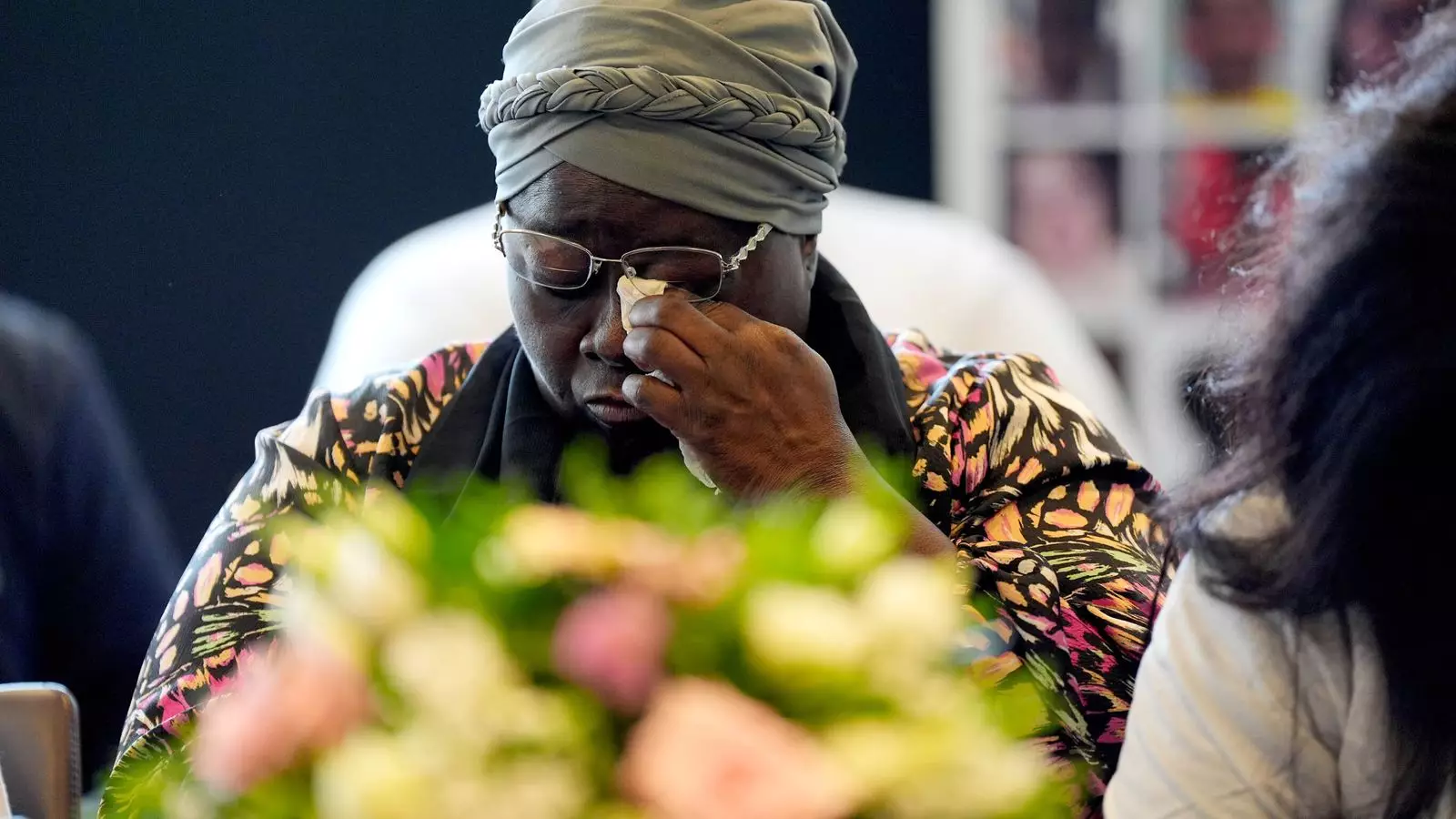The Grenfell Tower fire remains a haunting chapter of communal regret and tragedy in the UK, with bereaved families and survivors expressing intense frustration over the protracted inquiry that has promised justice yet delivered little. Seven years after the catastrophic incident that claimed 72 lives, the inquiries into the multifaceted failures that exacerbated the disaster are being perceived as inadequate. This sentiment was powerfully articulated on the day the latest report of the inquiry was released, which condemned systemic failures at multiple levels, from government oversight to the actions of construction firms and fire safety consultants.
One of the more poignant voices in this dialogue is that of Karim Khalloufi, who tragically lost his sister, Khadija, in the inferno. He lamented, “No one has asked me if I wanted this inquiry.” Through an emotional lens, this statement encapsulates the distress felt by many affected individuals who believe that the inquiry has served more as a bureaucratic process than a pathway to justice. The slow wheels of justice leave survivors and relatives feeling as if their pleas for accountability are constantly postponed, with Khalloufi poignantly noting, “Maybe I will die without having justice.”
Criticism of the inquiry is compounded by concerns that it has effectively stalled any potential criminal proceedings, leading many to wonder whether it is genuinely designed for accountability or merely a procedural veiling of inactivity. Hisam Choucair, who mourns the loss of six family members, described the inquiry as something forced upon them, reflecting a sentiment that resonates with many who have lost loved ones in various contexts of tragedy. Hisak’s anguish is further illuminated by the shocking experience of watching witnesses appear unperturbed while recounting events; he stated, “Watching witnesses ‘laugh’ while giving evidence burns me inside.” This distress highlights a perceived disconnection between the inquiry’s formal proceedings and the emotional weight carried by those impacted.
Francis Dean, another survivor, echoed this sentiment, emphasizing the inquiry’s fruitlessness as he feels shackled to his memories of that fateful night. His assertion, “Since that night I’ve not been the same person, I’m messed up,” speaks to the psychological ramifications that such disasters create. The promise of justice, as declared by the government of the time, now feels more illusive than ever, prompting an urgent call for the current government to take actionable measures toward accountability.
The Metropolitan Police have pledged to meticulously scrutinize the inquiry report, indicating a desire for thorough investigation into the elements leading up to the fire. Nevertheless, survivors and families affiliated with the victims face an agonizing wait, with the Crown Prosecution Service suggesting that a decision regarding potential criminal charges may not arise for up to two years. This creates an unsettling atmosphere of uncertainty, where the very essence of justice feels postponed indefinitely.
As the government recognizes the imperative for “full accountability,” there remains a crucial question of efficacy. Are current processes equipped to extract wrongdoings from an event characterized by a multitude of failures? The resolution to push for manslaughter charges offers a glimpse into the desires of families yearning to see their loved ones afforded the dignity of justice. One bereaved relative articulated starkly, “Nothing else will do,” reinforcing the sentiment that mere acknowledgment of failures is insufficient.
In light of the seven-year aftermath of Grenfell, the consistent outpour of grief and frustration is not merely a personal narrative but rather an emblematic reflection of a society grappling with accountability, transparency, and justice in the wake of preventable tragedy. Only time will tell whether this inquiry will yield answers or remain a painful reminder of unnecessary delays in justice.


Leave a Reply